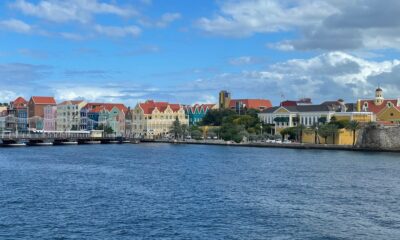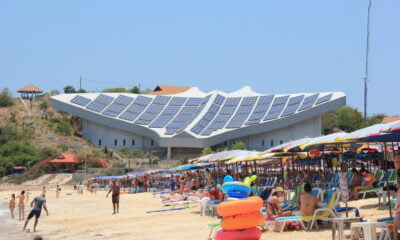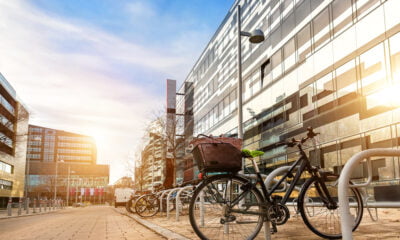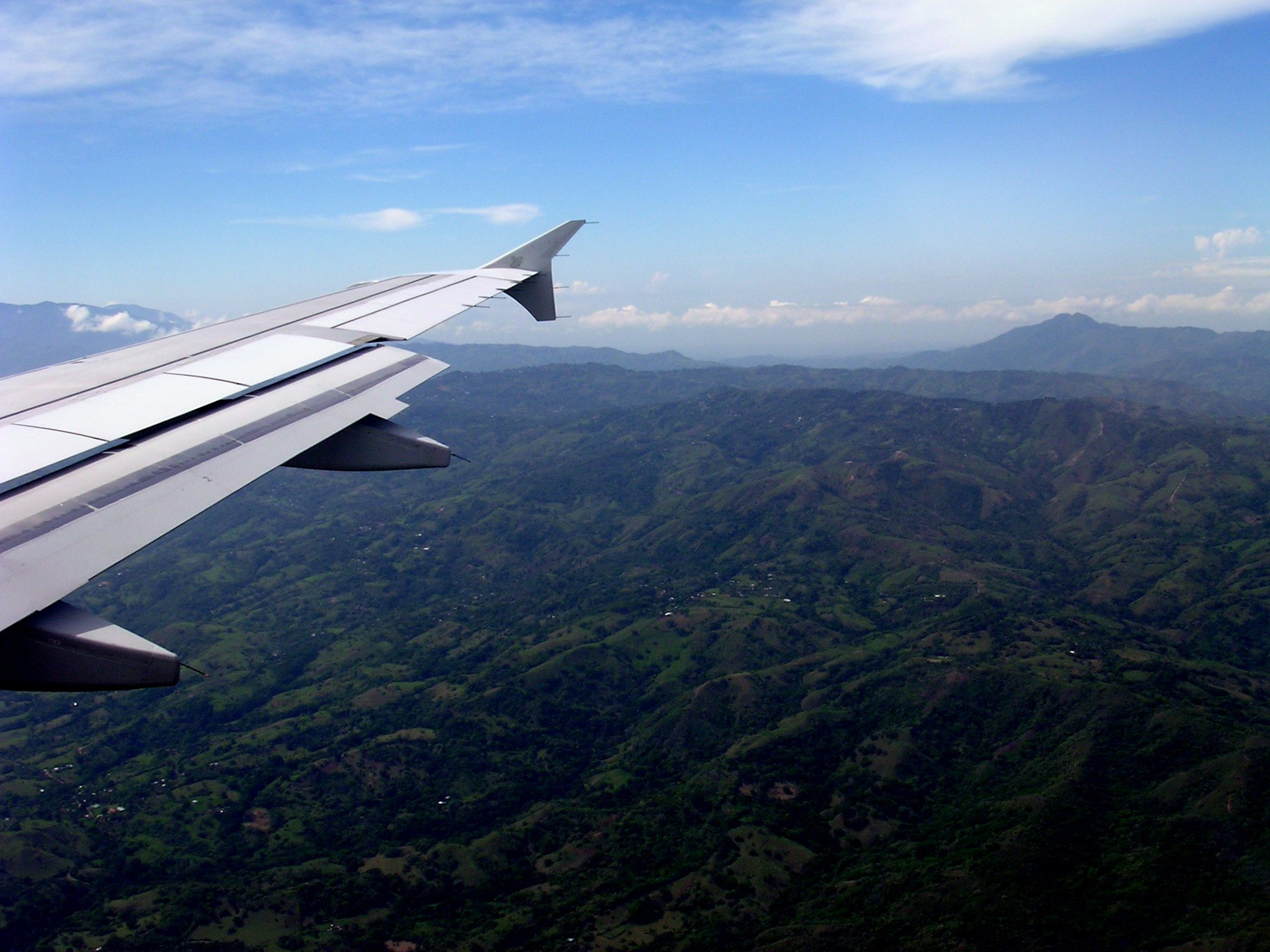
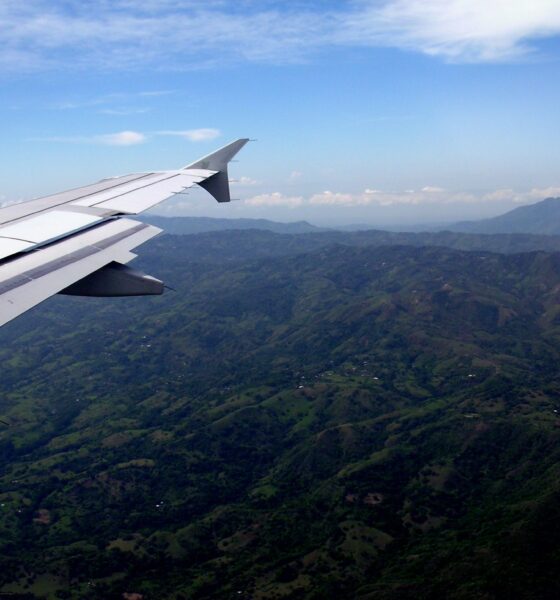
Environment
Sustainable tourism for the future we want
Kelly Bricker, chair of the Global Sustainable Tourism Council (GSTC), speaks with Blue & Green Tomorrow about the potential of tourism to influence how the world operates.
This article originally appeared in Blue & Green Tomorrow’s Guide to Sustainable Tourism 2014.
What is sustainable tourism?
I think one of the best definitions of sustainable tourism is that written by the United Nations World Tourism Organisation, which addresses what sustainable tourism actually should be doing:
Sustainable tourism should:
1. Make optimal use of environmental resources that constitute a key element in tourism development, maintaining essential ecological processes and helping to conserve natural heritage and biodiversity
2. Respect the socio-cultural authenticity of host communities, conserve their built and living cultural heritage and traditional values, and contribute to inter-cultural understanding and tolerance
3. Ensure viable, long-term economic operations, providing socio-economic benefits to all stakeholders that are fairly distributed, including stable employment and income-earning opportunities and social services to host communities, and contributing to poverty alleviation
Sustainable tourism development requires the informed participation of all relevant stakeholders, as well as strong political leadership to ensure wide participation and consensus building. Achieving sustainable tourism is a continuous process and it requires constant monitoring of impacts, introducing the necessary preventive and/or corrective measures whenever necessary.
Sustainable tourism should also maintain a high level of tourist satisfaction and ensure a meaningful experience to the tourists, raising their awareness about sustainability issues and promoting sustainable tourism practices amongst them
What’s the most effective way of raising awareness of sustainable tourism to travellers and holidaymakers?
Through word of mouth. One of the greatest avenues by which people not only learn about other destinations and activities, but actually ‘trust’ the source, is through word of mouth.
Getting sustainable tourism on social media sites, having folks discuss these products on blogs, National Geographic and other forms of popular media really can be effective.
What are the benefits of making the global travel and tourism industries sustainable? What are the consequences of not doing this?
To me, the obvious benefits are that we actually conserve the wonders of the world and the special places of the world that make our planet environmentally and culturally diverse. We can also improve the quality of people’s lives, who are ultimately very dependent on healthy and diverse ecosystems—for human survival.
As the leading economic driver on our planet, tourism has a unique opportunity to influence how the world operates. Sustaining places sustains us as human beings. Without a healthy planet where industries operate, sustaining ecosystems services, where human rights are respected, where quality of life is improved, we really cannot exist long-term.
Is it contradictory to fly on a sustainable holiday?
Air travel is a super highway in the sky. We know the economic and other benefits tourism can bring to regions that have limited development alternatives; therefore, we must continue to look at reducing emissions, better technology and improved methods for air travel.
Countries such as Costa Rica are looking at ways to improve offsets and create carbon neutral experiences for those travelling to their shores, because of their reliance on international tourism. There are no easy solutions, and improvements must be made. Weighing it all out is an important research problem. Would a destination be better off with no international travellers? I do think we have the answers just yet.
What is the economic case for sustainable tourism?
We reached just over 1 billion travellers last year. Hence, over a billion opportunities to effect positive change. Yet in some economies, the income earned from tourism ‘leaks’ out of the region or country, and as a result does not benefit local communities. When this happens, the economic benefits are realized elsewhere.
So the economic case for sustainable tourism is that the income generated must recycle into the local community. When this happens, infrastructure is improved, people benefit directly in ancillary businesses, employment improves, and ultimately poverty is reduced.
One argument around the future of tourism is that we simply need to have fewer holidays – particularly to the most far-flung places on Earth – to be truly sustainable. To what extent do you agree?
I am not sure I agree, and would like to continue to pursue this idea through evidence-based research—real evidence one way or the other. The alternatives for some destinations reliant on tourism are not great. I think we need to continue to explore what other development opportunities are available for destinations or locales.
Fewer holidays are not necessarily the answer; most likely it is more important to look at population growth and what we consume overall. Travel is not necessarily the ‘criminal’. It is more likely that increased population with increased demands on the world’s resources is the cause of our own demise.
We need to learn to live within our means, use resources wisely, conserve the ecosystem services upon which human life really depends, develop in a way that does not create a mess for some other location, etc. There are larger issues at stake here, and travelling may not be the worst of it all. However, we must learn to develop travel experiences in a sustainable way, and as an industry we are clearly not all on the same page just yet.
What are the key sustainable tourism trends for the next decade?
Great and difficult question. This is really anybody’s guess, but given the current conditions, people are going to increase their own knowledge of sustainable products, and therefore become more educated consumers as evidenced in online programmes.
Companies are going to seek sustainable verification and operations to reduce risk, improve marketing appeal to consumers, and reduce costs overall.
The planet will continue to be under siege, and therefore, sustainability in all sectors of society will be a must; because of human reliance on ecosystem services, industries will continue to look towards efficiency, low impact improvements to their operations; and increasing quality of life attributes which will increase in importance
Products will be designed to increase connection to the environment, and enhance quality of life at the destination level. Sustainable tourism is moving from a product focus to a destination level focus – sustainability in tourism will focus on supply chains, community and region level sustainability
How can investors play a role in encouraging a shift to sustainable tourism?
The United Nations Environmental Programme released the Green Economy Report which really addresses this question. Through this report, UNEP and experts all over the world explore the case for a different approach for development – through a ‘green’ economy. This explores how we secure resources, supply chains, and consumption and production methods for many industries.
This is an excellent resource and I would suggest investors review this resource and really explore the power they have for positive change. Investors can encourage sustainable production, they can create a demand for sustainable development through the creation of guidelines, such as the GSTC Criteria, to promote sustainable development, long-term vision for strong economic growth, social welfare, and environmental protection.
Where should someone start if they want to consider the ethical or environmental footprint of their holidays in 2014?
Ask questions! We also have GSTC recognised certification programmes that have asked many questions for the consumer. For example, certification programmes have looked in detail at sustainable operations, social and environmental criteria that help demonstrate a tourism operation is actually effecting positive change.
Have a look at the GSTC Criteria. Ask questions regarding the contributions back to local communities, the commitment to the environment and preserving and protecting biodiversity; ask questions concerning human rights, and laws protecting women and child and all members of society from human exploitation; ask what is the destination doing to contribute to quality of life, protecting the planet and committing to a just and democratic world. In the end, we must really ask ourselves: what kind of world do we want?
Kelly Bricker is chair of the Global Sustainable Tourism Council and associate professor at the University of Utah in parks, recreation and tourism.
Further reading:
Life changing travel and travel changing lives
When on a responsible holiday, do as the locals do
Responsible tourism means helping communities to thrive
Thriving, livable and green, Melbourne walks the talk as a sustainable city


 Environment12 months ago
Environment12 months agoAre Polymer Banknotes: an Eco-Friendly Trend or a Groundswell?

 Features11 months ago
Features11 months agoEco-Friendly Cryptocurrencies: Sustainable Investment Choices

 Features12 months ago
Features12 months agoEco-Friendly Crypto Traders Must Find the Right Exchange

 Energy11 months ago
Energy11 months agoThe Growing Role of Solar Panels in Ireland’s Energy Future


